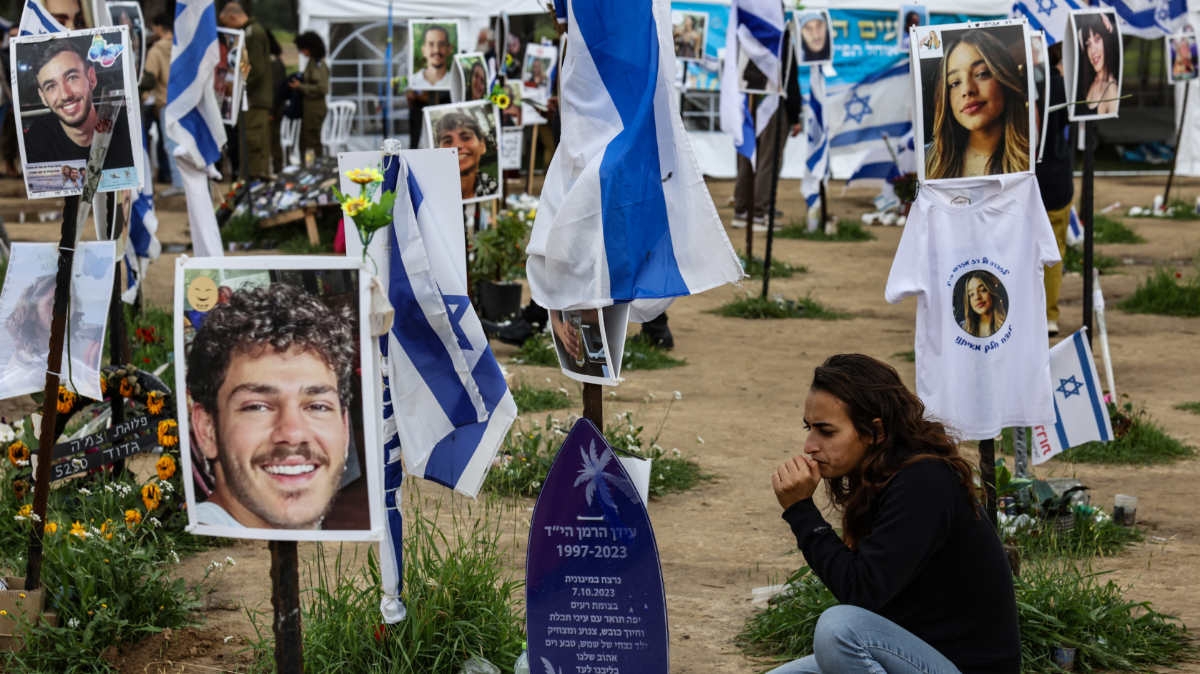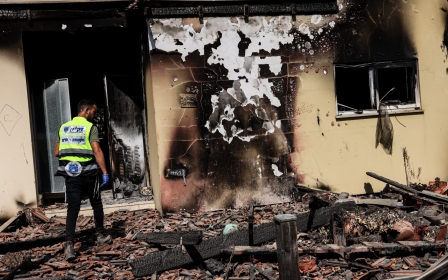Media coverage of UN report on 7 October challenged for ‘inaccurate’ portrayal of sexual violence

A UN report on allegations of sexual violence committed by Hamas and other Palestinian fighters has been inaccurately portrayed by political leaders and media outlets, driving a “cycle of mass rape propaganda” about Palestinians, according to activists, lawyers and academics.
The UN special representative on sexual violence in conflict, Pramila Patten, issued a report on 4 March examining allegations of sexual violence during the Hamas-led 7 October attacks.
The report followed a series of articles in western newspapers, which painted a picture of mass rape and sexual violence conducted by Palestinian fighters against Israelis. However, those reports have been challenged by activists and pro-Palestinian activists as biased.
“The report does not, in fact, reach many of the conclusions for which it is being lauded in western media, and several of its findings undermine the Israeli narrative,” the Feminist Solidarity Network for Palestine, a pro-Palestinian group, wrote in a review of the UN report.
The network describes itself as "an international collective of anti-imperialist, anti-colonial feminist academics, lawyers, and organizers working against Zionist settler colonial propaganda and towards a free Palestine".
New MEE newsletter: Jerusalem Dispatch
Sign up to get the latest insights and analysis on Israel-Palestine, alongside Turkey Unpacked and other MEE newsletters
The group accuses western media of misleadingly characterising Patten's work as an "investigation", when in fact, her office's mandate is to solely “gather information” and engage in “advocacy”.
They note that Israel has refused to cooperate with another UN team investigating the allegations operating under the UN Human Rights Council, by instructing doctors and health workers who treated the 7 October attack victims not to speak with the UN team.
"Ironically, it is the absence of any ability or power to investigate that likely induced Israel to extend an invitation to Patten," the activists wrote, adding "they knew in advance that the mission could not - indeed, would not - probe too far".
The activists say that Israel has lauded Patten's report as a "UN endorsement of its claim that Hamas committed systematic sexual violence on 7 October", but note that in her report Patten refuted many claims put forward by the Israeli government.
Patten refuted an NBC article that alleged a woman had been found at Kibbutz Be’eri with “objects like knives inserted in the genitalia”, saying the UN mission team that reviewed the photos of the scene “did not find anything like that”.
Patten also said that accounts by first responders of the Hamas-led 7 October attack contained “instances of unreliable, inaccurate forensic interpretation by untrained people”.
Activists ask for proof
When Patten’s UN report was published, it was picked up by major media outlets including the Financial Times, The Guardian, and The Washington Post, as advancing allegations on "reasonable grounds", that Hamas committed sexual violence on 7 October.
However, The Feminist Solidarity Network noted that Patten’s mission was “not investigative” and "did not gather information and/or draw conclusions on attribution of alleged violations to specific armed groups”.
The activists point to Patten’s remarks at a press conference after the publication of the report saying, “Given the multiple actors, it was Hamas, it was Palestinian Islamic Jihad, there were other armed groups, there were civilians, armed and unarmed, I did not go into attribution given the time and given the fact that I was not conducting an investigation.”
But activists have also taken aim at Patten’s conclusion that there are “reasonable grounds to believe that multiple incidents of rape, including gang rape, occurred” on 7 October.
Specifically, they have asked how she was able to reach this conclusion given that the UN team did not interview a single survivor of sexual violence, or find photographic evidence.
"UN Special Representative Pramila Patten states in her report that her mission viewed fully 5,000 photographs and 50 hours of footage of the October 7 attack supplied to her by the Israeli government and available in open sources," Norman Finkelstein, an expert on the Israel-Palestine conflict, wrote on X.
"The digital evidence the UN reviewed included bodycams, dashcams, individual cellphones, CCTV, and traffic surveillance cameras,” but didn’t find one example of sexual violence occurring, Finkelstein notes.
“Isn't it time for UN Secretary-General Guterres to appoint a Special Representative to investigate Pramila Patten?” he said.
This article is available in French on Middle East Eye French edition.
Middle East Eye delivers independent and unrivalled coverage and analysis of the Middle East, North Africa and beyond. To learn more about republishing this content and the associated fees, please fill out this form. More about MEE can be found here.



